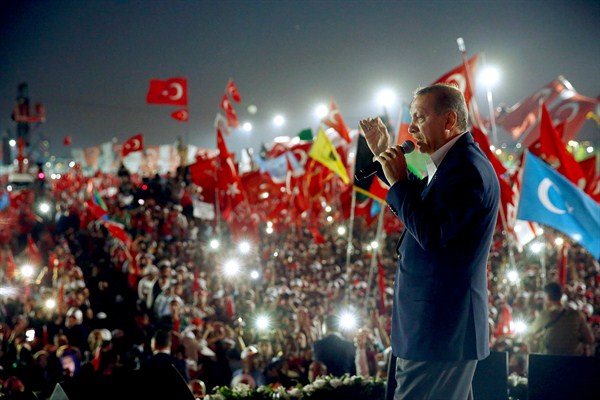Editor’s note: This article is part of an ongoing WPR series inviting authors to identify the biggest priority—whether a threat, risk, opportunity or challenge—facing the international order and U.S. foreign policy today.
Just 25 years after winning the Cold War, with the collapse of the Soviet Union and the communist regimes of Eastern Europe, the United States is facing a very different world than the one many had expected. Instead of a world of relative peace, with no proxy wars in developing countries and no major global geostrategic opponents, there is violence and terrorism around the globe, much of it inspired by the self-proclaimed Islamic State. There are major geostrategic conflicts with an assertive Russia and a bolder China, with proxy wars with Russia of varying levels in Syria, Ukraine, Georgia and Armenia and a complex struggle for influence with China in Asia and the Pacific, with possible flashpoints in the South China Sea. But perhaps most dismaying is the decline or even collapse of democratic governance in U.S. allies such as Thailand and Turkey, along with the fracturing of the European Union.
The U.S. and its European and Pacific allies thus find themselves facing a new Cold War. While the risks of a nuclear exchange seem far less than in the 1960s, they cannot be wholly discounted, as a nuclear-armed Russia and China are building up their military presence in areas where an accidental confrontation with NATO or the U.S. is a real threat. Yet the closest similarity to the Cold War is that Western democracies again find themselves forced to argue for the value of universal human rights against heavily armed and confident major powers for whom democracy and human values are seen as threats to be defeated. Today the global advance of democracy is being countered by a multifaceted and aggressive strategy embracing proxy wars, propaganda and the new tools of cyberattacks, as well as domestic coercion.

